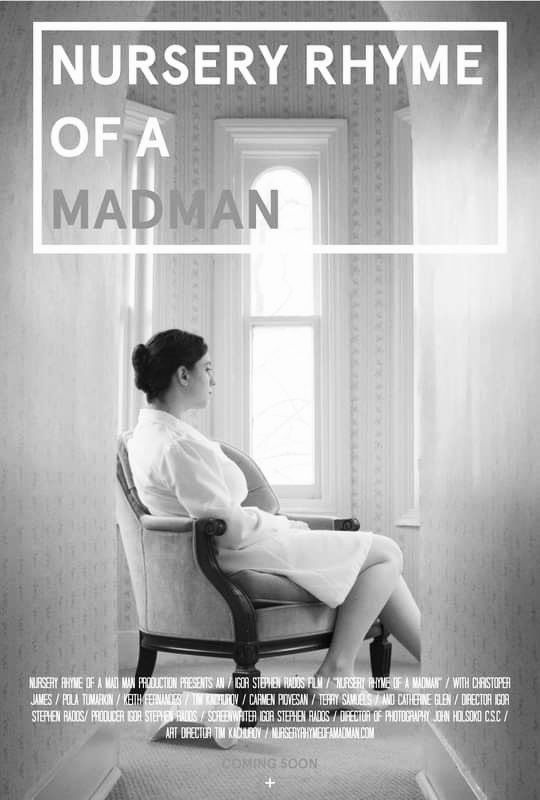
-Who is Igor Stephen Rados?
Igor Stephen Rados is a controversial filmmaker with a curious take on life, constantly searching for the “other side” of an eternal riddle that needs to be solved.
-What inspired you to become a filmmaker?
Not just one thing or event makes one want to become a filmmaker. Often there is a movie that triggers emotions and leaves a permanent mark on us.
At three years old, my aunt and her girlfriend took me to the theatre to watch Aldrich’s “Whatever Happened to Baby Jane.” That was back in Belgrade, where this film was a hit in the sixties. Those two ladies were sure we would be watching a sweet movie, or if not so much, I would be sleeping through the show. They were wrong. It was a dark and scary movie, and I did not blink my eye. It was in English with Serbian subtitles. I did not understand a word, but I was captivated by the visuals. Nightmares have been chasing me for years with images of a ceramic-faced doll falling out of a car by the gate. I could not understand where those pictures came from, but I started falling in love with movies. Later in my teens, I have seen Rush’s film The Stunt Man with Peter O’Toole, playing an eccentric director. At that moment, I knew I wanted to be a filmmaker.

-Can cinema bring a change in society?
Art in any form may affect us and bring change to our being. Film, in particular, delivers much information and makes quick access to our subliminal mind. We often make spontaneous moves in life, quote famous lines, and pull the story’s moral. The artist’s job is to bring profound observations to the world. It may often deviate from a shared reality; however, it must point to the untold.
-What would you change in the world?
The world does not need to be changed. Life is beautiful the way it is. If anything, we should embrace it even more. The problem is within the people who feel entitled to change the planet or give us recipes for living.

-Where do you see the film industry going in the next 100 years?
Independent filmmaking become accessible more than ever with the new technology. As a response, full-budget productions become unreachable and high in cost. In analogy, we witness the corporate world taking over small boutiques and businesses.
From a retro perspective, we had a golden era of filmmaking during the neorealism period. Filmmakers could send a word to society without being enslaved by studios and the financial system. Vittorio De Sica, and Francois Truffaut, were pioneers of the movement, and later on, John Cassavetes successfully pushed his independent carrier.
Pulling that artistic stunt today is virtually impossible, but the world does not stop there. Devoted artists will push their projects with all they got, even a hundred years from now.

